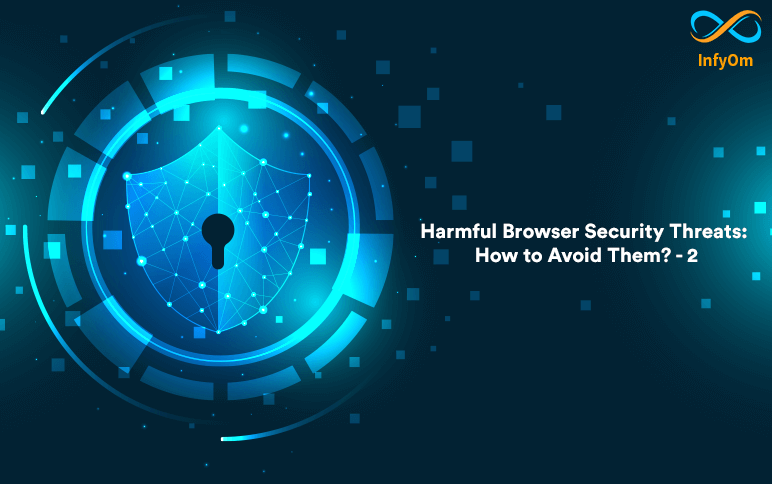In our previous tutorial, we had seen the most common security threats. Let’s see Main Seven Tips and its Recommendations on How You Can Protect Yourself from These Threats are mention below.
1. Saved Login Credentials
It is recommended not to save credentials in the browser. Instead, use password managers like Password Safe and KeePass to store credentials.
Password managers work through a central master password and help you keep your website passwords secure.
You can also set the administrator to access a saved login or URL, depending on your convenience and security reasons.
2. Removable Browsing History
Deleting the browser cache is a way to remove risky information, especially when engaging in confidential activities such as online banking. This step can be performed manually in the browser or set to automatic when the browser is closed. Another way to stay protected from this threat is to use Incognito or Private Browsing mode, where no saves can be harvested.
3. Disable Cookies
The best solution to the threat of cookies is to disable them when using your browser.
However, it is not exceptional, as many websites rely on cookies and thus get limited access to their functionality once they are turned off.
Disabling cookies may also result in annoying prompts. Getting rid of cookies on a periodic basis can help you protect your browser, beware of duplicate information by websites as a side effect of it.
4. Reduce Browser Cache by using Incognito Mode
Protection from such threats can be achieved through incognito browsing as well as by manually clearing the cache as per the requirement, especially after a sensitive browser search.
5. Look for Standard Java Configuration
Java is a widely used language for running Windows and other operating system-related code. It is designed in such a way that the applets inside it run in a separate sandbox environment, which helps prevent them from accessing other operating system components and applications. But more often than not, these vulnerabilities allow small applications to escape from the sandbox environment and cause the threat.
To avoid Java-related threats, search and choose a standard Java security configuration that works best with your browser as well as PC and deploy these configurations through a key source such as Group Policy.
6. Third-Party Plugins or Extensions
Browsers often have third-party add-ons or extensions provided for various tasks, for example, JavaScript or Flash for viewing or working with content. These are both from well-known high-quality dealers, however, there are various modules and add-ons from less legitimate sources and may not, however, offer a business-related benefit. For this type of threat, it is recommended to only allow business-related plugins and extensions as a key aspect of the official business approach, for example, to use the Internet and email. Depending on the browser(s) used in your link, explore ways to whitelist unwanted plug-ins or appropriate plug-ins, so that only those plug-ins can be served. Security modules are arranged for automatic updating or submission of new forms by focused components, (for example, Active Directory Group Policy or System Center Configuration Manager).
7. Ads Popping up and Redirects
Pop-up ads are well-known malicious ads that can be particularly confusing and difficult to work with. They regularly give false notifications, for example, they confirm that PC you have an infection and encourage you to submit their antivirus to activate it. Usually, malware is the thing that really ends up happening. These popups are questionable to close because often there is no X to do it like this.
The best alternative is to close the program completely or use Task Manager in Windows / Execution direction in Linux to close the application.
That’s it. If you want to harm-free system, take these tips and apply them to your Web-application. It will help to protect from security threats.



